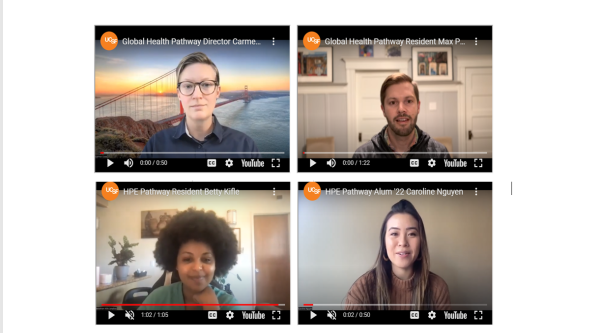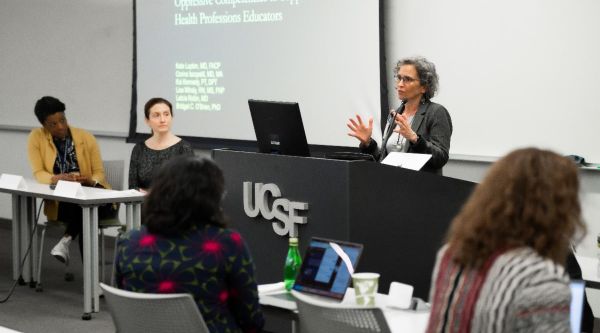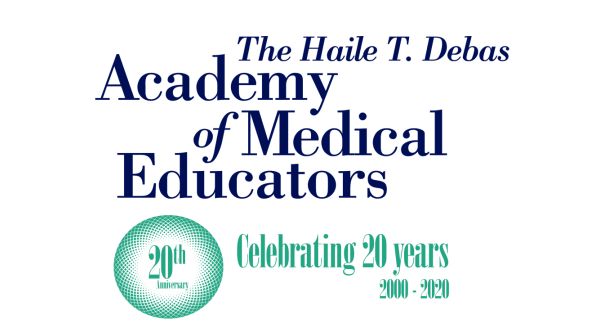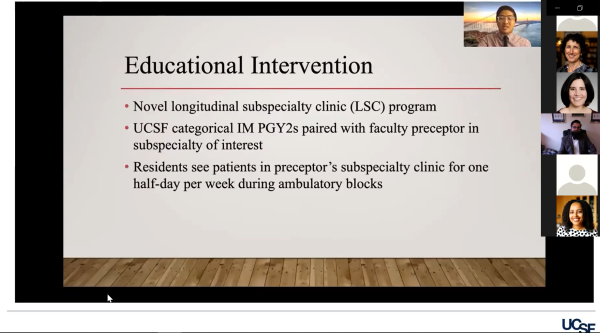All six GME Pathways offer customizable training which builds upon existing expertise and expands specialized knowledge and skills. The program accepts learners from all levels and is flexible enough to accommodate demanding trainee schedules.
Learn More About the GME Pathways
The Global Health (GH) Pathway engages trainees to become equitable, sustainable partners in global health clinical practice, as well as cultivate skills and knowledge relevant to decreasing health inequities and disparities locally and internationally.
- Fall Course: September 14-25, 2026 | 8:00am – 12:00 pm, with optional afternoon workshops
- Faculty Leadership: Carmen Cobb-Walch, MD and Nicole McHale, MD
- Application for the GH Pathway for Fall 2026
- Interested in learning more about GH?
The Health Professions Education (HPE) Pathway educates learners from all health professions fields to develop excellence in teaching, curriculum development and application of learning theory to practice sound educational principles in the learning environment and expand knowledge in the field of health professions education.
- October 5-30, 2026 | Monday-Thursday 8:00am-12:00pm; with either Monday or Tuesday small groups in the afternoon
- Faculty Leadership: David Chia, MD
- Application for the HPE Pathway for Fall 2026
- Interested in learning more about HPE?
The Clinical Informatics and Data Science (CIDS-AI) Pathway is an introduction to the fields of Clinical Informatics, Data Science and Artificial Intelligence. It is intended as an opportunity for learners to learn basic concepts, principals, and skills in these fields, as well as act as a resource to help them consider and pursue careers in these areas.
- August 31 to September 4, 2026 | Morning sessions
- Faculty Leadership: Xinran (Leo) Liu, MD, Anoop Muniyappa, MD, MS, Augusto Garcia Agundez Garcia, Jessica Pourian, and Aris Oates, MD,
- Application for the CIDS-AI Pathway for Fall 2026
- Interested in learning more about CIDS-AI?
The Health Equity and Racial (HEAR) Justice Pathway is a foundational learning experience for residents, fellows, and medical students who are committed to addressing inequity in healthcare and to exploring meaningful opportunities to advance racial and social justice. HEAR Justice is an intentional space open for learners to engage in critical reflection and skill building around improving health outcomes, creating an equitable medical learning environment, and dismantling systems that create inequity.
- September 28 to October 2, 2026 | Morning Sessions and some afternoons
- Faculty Leadership: Bianca Argueza, MD and Rosny Daniel, MD
- Application for the HEAR Justice Pathway for Fall 2026
- Interested in learning more about HEAR Justice?
The Health Systems Leadership (HSL) Pathway is collaboration with the Department of Medicine. It prepares trainees to be leaders in systems improvement and health care policy.
- Cohort begins in August and continues through June | Morning Session
- Faculty Leadership: Josue Zapata, MD
- Application for the HSL Pathway for 2026-2027
- Interested in learning more about HSL?
The Training in Clinical Research (TICR) program aims to increase the number and quality of clinical investigators through offering a broad array of educational opportunities in the methods of clinical research. One of its offerings, the Designing and Conducting Research (DCR) course, prepares trainees to design an independent clinical research project.
Frequently Asked Questions
How do I join the GME Pathways?
- Residents and fellows should first consult with their program director or program-track director for approval to enroll in the GME Pathways. Residents and fellows should also carefully review the different components of each pathway to select the one that best aligns with their academic interests to gain the best training and mentorship opportunities. Residents and fellows are encourage to submit an application for their selected GME Pathway as early as possible to reserve their seat.
What are some benefits for joining the GME Pathways?
- All pathways provide courses that will strengthen trainees in their chosen field of study and provide skills and knowledge in their distinctive work.
- Learners are also able to connect with a community of practice that will provide opportunities for scholarship and assist learners in producing a mentored project on a wide variety of topics and formats.
- Learners can also complete a legacy project (workshop, manuscript, implementation, policy analysis) that brings the benefits of innovation to a broader community.
- In some cases, Pathways may lead to a nationally recognized advanced certificate or degree.
Is there flexibility on when I can complete the program components?
- All Pathways offer opportunities that build upon your existing expertise and accommodate as much as possible with your demanding schedule. The Pathways strive for flexible experiences and opportunities that align with a resident’s and fellow’s busy clinical schedules. For program specific information, we strongly encourage you to reach out to the program directors as they are happy to address any unique concerns and work collaboratively with you and your program director.
What is the cost to participate in the GME Pathways?
- Residents and fellows incur no financial cost or liability by participating in any of the GME Pathway programs with the exception of the TICR program as those costs are outlined by the Department of Epidemiology & Biostatistics and not the Office of Graduate Medical Education.
Will funding be available to me if I'm interested in doing research and/or presenting my scholarly work?
- In addition to residency/fellowship program specific funding, the Resident Research Funding Program (RRFP) and Resident Research Travel Program (RRTP) provides resources for residents to support their research endeavors. The Resource Allocation Program (RAP) has various intramural research funding opportunities for the UCSF campus.
Will I need to identify a project or mentor before starting the program?
-
Each pathway has various deliverables and expectations of learners; however, our pathway directors work individually with each participant to provide you with support as you begin planning your scholarly work if needed. Even though each individual pathway has a different means of providing this support (e.g. conferences/office hours during the course, individual or micro-group meetings before the course, longitudinal work-in-progress sessions after the course), there are also additional tools that learners can utilize to help locate mentors and project opportunities of interest for learners.
I still have more questions, who can I contact?
- If you need any additional assistance, please contact the GME Pathways coordinator, Gabby Negussie-Retta at [email protected] or GME Pathways director, Kristina Sullivan at [email protected]
Resources
6
unique pathways
200
Learners in 2025-26
23%
Conversion to UCSF FACUlTy since 2019
GME Pathways Faculty and Staff
GME PATHWAYS APPLICATION & INFORMATION FOR 2026-2027
HAVE GENERAL GME PATHWAYS QUESTIONS?









